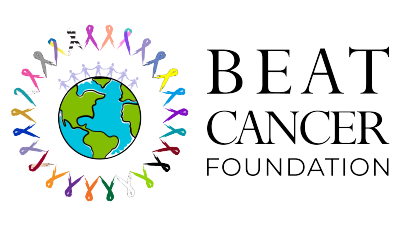
Sulforaphane

The Power of Sulforaphane in Cancer Combat
Sulforaphane, a potent compound discovered in green cruciferous vegetables and sprouting seeds, has been garnering significant attention within the realm of cancer research. Its capability to prevent and treat diverse forms of cancers, including breast, prostate, colorectal, bladder, and oral cancer, has been spotlighted by Dr. Young S. Kim, the head of Cancer and Nutrition at the National Cancer Institute, USA. This article aims to delve into the world of Sulforaphane and its remarkable anti-cancer properties.
Dr. Jed Fahey of Johns Hopkins School of Medicine was among the pioneers to study sulforaphane. He discovered that sulforaphane, especially from broccoli sprouts, plays a significant role in chemoprevention, shielding healthy cells against chemical carcinogenesis 1.
Sulforaphane: More than Meets the Eye
While sulforaphane is present in all cruciferous vegetables, broccoli stands out as the leading source. Broccoli isn't merely rich in vitamins, minerals, and antioxidants; it also boasts carotenoids, polyphenols, glucosinates, and isothiocyanates.
Sulforaphane, scientifically known as 1-isothiocyanate-4-(methylsufinyl) butane, emerges when you cut or chew broccoli, initiating the transformation of the precursor glucoraphanin by the enzyme myrosinase. This process, however, is hindered by cooking or freezing, making 'fresh is best' the mantra for consuming cruciferous vegetables. With broccoli sprouts containing up to 50 times more sulforaphane per gram, they offer an exceptional source (2).
The Might of Sulforaphane
The compelling research on sulforaphane reveals a myriad of benefits. Not only does it exhibit antimicrobial, antioxidant, and anti-inflammatory properties, but it also safeguards DNA from chemical carcinogens. Its notable epigenetic effects allow it to modulate gene expression, inhibit histone deacetylase, methylation, and micro-RNA modulation, which collectively help prevent message loss. Furthermore, it thwarts angiogenesis and tumor invasion, curbs cell proliferation, and promotes apoptosis and cell cycle arrest.
Sulforaphane: A Bane for Various Cancers
A substantial body of research supports the protective role of sulforaphane against multiple cancers. Its benefits are observed in breast cancer prevention and the restriction of cancer cell growth, leading to their apoptosis, particularly in breast cancer stem cells (3).
For men with prostate cancer, sulforaphane consumption demonstrated a significant reduction in PSA levels, prolonging the PSA doubling time, and thus possibly delaying cancer progression (4).
In colorectal cancer, sulforaphane emerged as a protector of the stomach lining from H. pylori infection and an inhibitor of cancer spread. Its impact on colorectal cancer incidence was inversely proportional to the intake of cruciferous vegetables (5).
Researchers at the Baylor College of Medicine in Texas further elucidated sulforaphane's mechanism. They found that it induces apoptosis in leukemic cells without harming healthy cells, underscoring the need for alternative treatments (6).
In summary, sulforaphane has emerged as a promising dietary compound with powerful anticancer properties, spanning across different types of cancers. It's becoming increasingly clear that a cancer-fighting diet should incorporate sulforaphane and polyphenols—two main bioactive and epigenetic food groups.
References:
1. J W Fahey et al. Broccoli sprouts: an exceptionally rich source of inducers of enzymes that protect against chemical carcinogens. Proc Natl Ac Sci USA; 1997 Sep 16; 94 (19) 10367-72
2. Sulforaphane in broccoli: the green chemoprevention!! Role in cancer prevention and therapy. D.B.Nandini et al; JOMFP, 2020, May-Aug 24.
3. Breast cancer prevention - Is there a future for sulforaphane and its analogs? Nutrients 2020 June 12(6); Dominika Kuran et al.
4. Effect of sulforaphane in Men with Biochemical Recurrence after Radical Prostectomy; Bernard G. Cipolla et al; Cancer Prevention research; August 2015
5. Chemoprevention against colon cancer by dietary intake of sulforaphane; Akinori Yanaka et al; Functional Foods in Health and Disease
6. Cancer Prevention Research; March 2019; Nadia P Castro et al.
7. Oregon State University Feb 10th 2016.
8. American Journal of Clinical Nutrition, 15 April, 2019; ESCAPE, Randomised Controlled trial;Maria H. Traka et al.
“Knowing all your treatment options could be life-saving!”
Location
Sheridan, WyomingTogether, we can beat cancer
Thank you for your interest in the Beat Cancer Foundation. We are here to support you every step of the way in your cancer treatment journey. Please fill out the form below, and our team will be in touch with you shortly. Together, we can beat cancer. (307) 291-0991

